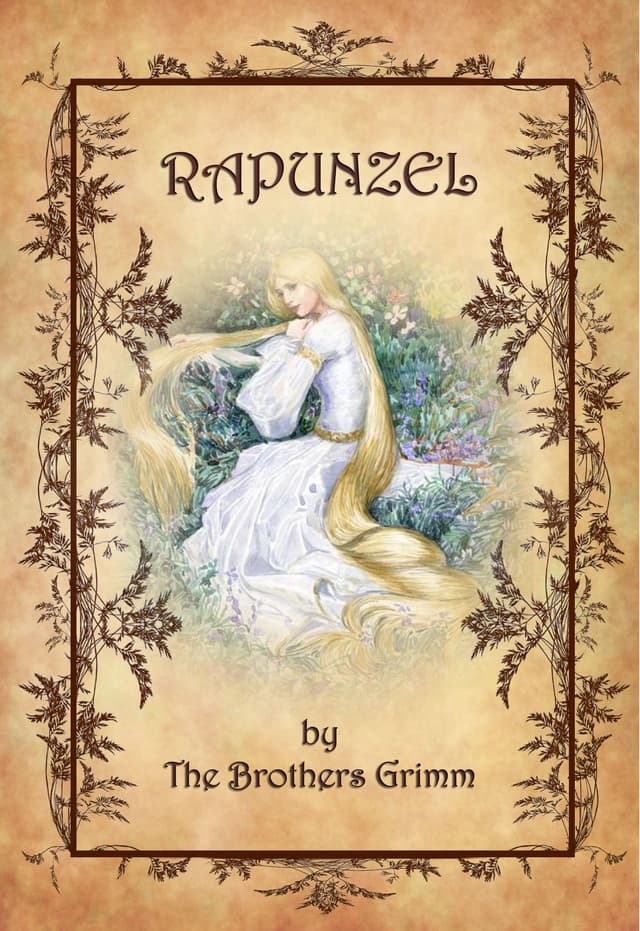
Book Review Summary: Rapunzel
Introduction
"Rapunzel," a short story written by Jacob Grimm, delves into the enchanting world of fairy tales. Known for his work on Germanic folk tales and linguistics, Grimm brings a unique perspective to this classic tale. In this article, we will explore the author's background, analyze readers' opinions, and discuss the reasons for recommending or not recommending this book.
About Jacob Grimm
Jacob Grimm, also known as Jakob Ludwig Karl Grimm, was a German philologist and folklorist. He is best known for his collaboration with his brother Wilhelm Karl Grimm in collecting and publishing Germanic folk tales, resulting in the famous collection of "Grimm's Fairy Tales." Grimm also made significant contributions to the field of comparative linguistics, formulating Grimm's Law, which explains the regular changes in Indo-European consonants. In addition to his work on language, Grimm authored the monumental "German Dictionary" and "Deutsche Mythologie," exploring Germanic mythology.
Analysis of Views
- Similarities to other fairy tales: Readers often mention the similarities between "Rapunzel" and other well-known fairy tales, such as "Beauty and the Beast." While some find these similarities intriguing, others feel that they detract from the uniqueness of the story.
- Morbidity and darker tone: The beginning of the story shares echoes with "Beauty and the Beast," but it is noted that the Grimms' version of Rapunzel is darker and grimmer than the Disney version. Readers appreciate the morbidity and deeper exploration of themes like craving forbidden desires and the consequences that follow.
- Unpredictable ending: The ending of "Rapunzel" is seen as both different and satisfying. Some readers find it unexpected and enjoy the contrast between the darker elements and the happy ending.
- Symbolism and metaphors: The story is praised for its symbolism and metaphors, which add depth and complexity to the narrative. Readers appreciate the exploration of themes such as desire, freedom, and the consequences of actions.
- Dramatic storytelling: The original fairy tale stories are known for their dramatic elements, and "Rapunzel" succeeds in maintaining this dramatic quality throughout the story. Readers find it engaging and captivating from start to finish.
Reasons for Recommendation
- Exploration of darker themes: Readers recommend "Rapunzel" for its exploration of darker themes and its ability to delve into deeper symbolism. The story provides a more mature and thought-provoking experience compared to other versions of Rapunzel.
- Unique storytelling approach: The Grimms' version of Rapunzel stands out for its unpredictable ending and its ability to balance darkness with a happy resolution. This approach adds an element of surprise and keeps readers engaged throughout the story.
- Intriguing characters: The characters in "Rapunzel" are well-developed and leave a lasting impression on readers. The dynamics between Gothel, Rapunzel, and the prince add depth to the story and keep readers invested in their fates.
Reasons for Not Recommendation
- Disney comparison: Some readers feel that "Rapunzel" pales in comparison to Disney's adaptation, Tangled. They find that the Disney version is more memorable and enjoyable, preferring its lighter tone and magical elements over the darker, more realistic portrayal in the original story.
- Lack of magical elements: A common criticism of "Rapunzel" is that it lacks magical elements present in other fairy tales. Readers find it strange that Rapunzel's long hair acts as a ladder without any explanation or source of magic to maintain its silky smoothness. This inconsistency may detract from the overall believability of the story.
Conclusion
"Rapunzel" by Jacob Grimm offers a unique perspective on a classic fairy tale, delving into darker themes and exploring symbolism and metaphors. While some readers appreciate its unpredictable ending and intriguing characters, others find it lacking in comparison to Disney's adaptation or feel that it lacks magical elements. Ultimately, whether or not you recommend this book depends on your personal preferences for storytelling and your desire for a more mature or magical retelling of Rapunzel's tale.